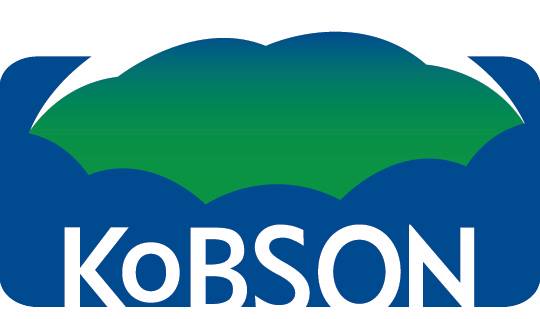DOI: 10.5937/jaes11-3489
This is an open access article distributed under the CC BY-NC-ND 4.0 terms and conditions.

Volume 11 article 245 pages: 15 - 22
In the Balkan region and in the territory of the Republic of Serbia, the energy consumption in relation to gross domestic product is huge. The Republic of Serbia consumes two to three times more energy than the gross domestic product, compared with the average in the European Union. At the beginning of 2013, on the territory of the Republic of Serbia, will be announced the Law on rational use of energy, which is currently in draft form. Adoption of the Law is a step in Serbia’s accession to the EU, because the Law will basically have taken a European directive on energy effi ciency. In order to determine the extent to which the concept of energy effi ciency is presented in the formal and informal education, as well as knowledge of this area in general, the survey was done. This paper describes a results of survey that was done with the aim of gaining information about education in the fi eld of energy effi ciency in formal and informal education systems in Serbia, as well as how much are the citizens familiar with the term. This paper shows the questionnaire which was distributed to the respondents. For easily and quickly collecting the necessary data, it was used the on-line questionnaire. The questionnaire was designed as a web application. The survey was conducted on a sample of 200 respondents, from September to December 2012. After the structure of the respondents, the results of research and analysis are presented in this paper, with one proposed research in future.
This paper is part of
a project supported by the Republic of Serbia Ministry of education, science and
technological development, under the number III 43008.
Al-Mansour,
F., (2011) Energy efficiency trends and policy in Slovenia, Energy, Volume 36,
Issue 4, April 2011, Pages 1868–1877
Backlund,
S., Thollandera, P., Palm, J., Ottosson, M., (2012) Extending the energy
efficiency gap, Energy Policy, Volume 51, December 2012, Pages 392–396
Cagno, E.,
Worrell, E., Triannia, A., Pugliesea, G., (2013) A novel approach for barriers to
industrial energy efficiency, Renewable and Sustainable Energy Reviews, Volume
19, March 2013, Pages 290–308
Djajic, N. (2003): Energetika – preduslov odrzivog razvoja privrede i drustva nase zemlje, Journal of Applied Engineering Science, vol. 1, No. 1, pp. 7-14
Fleiter,
T., Fehrenbach, D., Worrell, E., Eichhammera, W., (2012) Energy effi ciency in
the German pulp and paper industry – A modelbased assessment of saving
potentials, Energy, Volume 40, Issue 1, April 2012, Pages 84–99
Griffi n,
P.W., Hammond, G.P., Ng, K.R., Norman, J.B., (2012) Impact review of past UK public
industrial energy effi ciency RD&D programmes, Energy Conversion and
Management, Volume 60, August 2012, Pages 243–250
Gunn, C.,
(1997) Energy efficiency vs economic efficiency?: New Zealand electricity sector
reform in the context of the national energy policy objective, Energy Policy,
Volume 25, Issue 2, February 1997, Pages 241–254
http://ankete.izrada-web-sajtova-beograd.com/,
downloaded 15.01. 2013.
http://www.euractiv.rs,
Euractiv Srbija, downloaded 19.11. 2012.
http://www.sciencedirect.com,
downloaded 02.03. 2013.
ISO
50001:2011 Energy management systems — Requirements with guidance for use, International
Organization for Standardization, 2011.
Law on
rational use of energy, draft, Republic of Serbia
Lopes,
M.A.R., Antunes, C.H., Martins, N., (2012) Energy behaviours as promoters of energy
effi ciency: A 21st century review, Renewable and Sustainable Energy Reviews, Volume
16, Issue 6, August 2012, Pages 4095–4104
Mandal,
S.K., (2010) Do undesirable output and environmental regulation matter in
energy efficiency analysis? Evidence from Indian Cement Industry, Energy
Policy, Volume 38, Issue 10, October 2010, Pages 6076–6083
Momcilovic,
V., Medar, O., Manojlovic, A. ,Papic, V. (2003): Povecanje energetske efikasnosti
kao element razvoja informacionog sistema transportnog preduzeca, Journal of Applied
Engineering Science, Vol. 1, No. 3, pp. 35-43
Santos,
A.H.C., Faga, M.T.W., Santos, E.M., (2013) The risks of an energy efficiency policy
for buildings based solely on the consumption evaluation of final energy,
International Journal of Electrical Power & Energy Systems, Volume 44,
Issue 1, January 2013, Pages 70–77
Sola, V.H., Xavier, A.A.P., (2007) Organizational human
factors as barriers to energy efficiency in electrical motors systems in
industry, Energy Policy, Volume 35, Issue 11, November 2007, Pages 5784–5794







